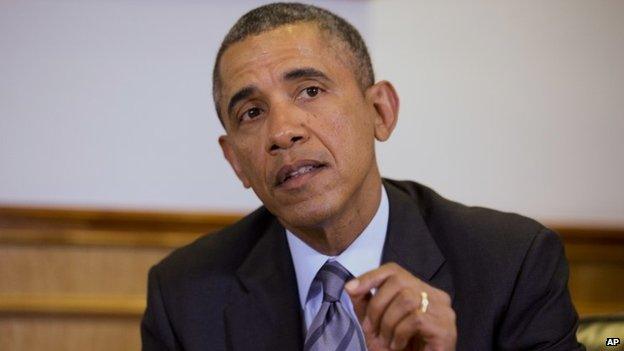A matter for the folks in Scotland
- Published

As you might expect, supporters of the Union are singularly delighted at the comments by President Obama to the effect that he favours a strong United Kingdom, implying that he is less than delighted with the notion of independence.
And the response from supporters of independence? One senior figure said to me privately: "This is incredible. We hadn't expected them to run Obama until August. We must be doing well!" This was, needless to say, delivered in ironic fashion.
To date, the US has stayed neutral on the Scottish question: the US ambassador to the UK told me last October that it was the policy of the US to stay out of the Scottish referendum.
At the same time, the US has appeared ready to be a little more open on the prospect of the UK leaving the EU. (The Americans are agin.)
The distinction was that the Scottish referendum was primarily an internal matter - while relations with the EU directly impinged upon global diplomacy.
Speaking after the G7 summit in Brussels, President Obama has elided that distinction. He emphasised that the EU issue was for the people of the UK to determine - and the Scottish referendum remained a matter for folk in Scotland.
But his wider comments drew attention to the value placed upon a strong United Kingdom by its ally, the USA.
In response, the Shadow Foreign Secretary Douglas Alexander said it was a significant intervention which would remind people in Scotland of the global value placed upon the cross-border connection in the UK.
The First Minister Alex Salmond welcomed the emphasis upon popular self-determination. He noted that, unlike the US in 1776, the people of Scotland had the chance to choose their future democratically and without conflict.
His final message to the President? "Yes we can."